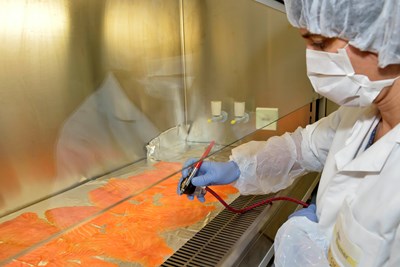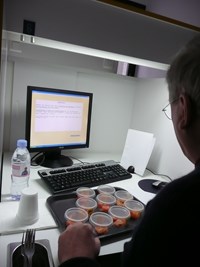IFREMER | |
IFREMER is a French institute that undertakes research and expert assessments to advance knowledge on the oceans and their resources, monitor the marine environment and foster the sustainable development of maritime activities. Through a systemic approach, Ifremer plays a part in marine environmental observation on all scales and in understanding ecosystems, the processes governing them and the services they help provide, in a context of global change. Ifremer designs and deploys infrastructures for marine research and monitoring and tools for observation and experimentation, and manages databases. It operates a significant part of the French oceanographic fleet on behalf of the entire scientific community. Few figures on Ifremer:
The laboratory of Microbial Ecosystem and Marine Molecules for Biotechnology (EM3B) includes 18 staff members and several PH-D and post-doc students.
The main goals of EM3B are to : 1. Study the (co)evolution of microbial communities in seafood products, their interaction and the incidence on quality and safety of seafood products (fish, crustacean). 2. Study the bacterial metabolites, their biosynthesis and the opportunity for innovation. | EM3B owns and periodically enriches unique collections of deep-sea and seafood bacteria (5 000 isolates). It conducts research for exploitation and promotion of those bacteria and their biomolecules (antimicrobial compounds, exopolysaccharides, enzymes) for application in human (sea)food, health, cosmetics, environment...
Within the first axis of our activity, EM3B is expert in:
Some of our bacterial strains are licenced to the industry. |
⬅︎ Back to list of Permanent National representative member institutes | |
Contact | WEFTA on social media | Sitemap
WEFTA
WORKING GROUP
Working groups meetings
MEMBERS | MEETINGS
WEFTA AWARD
NEWS
AGENDA
SEARCH
|




